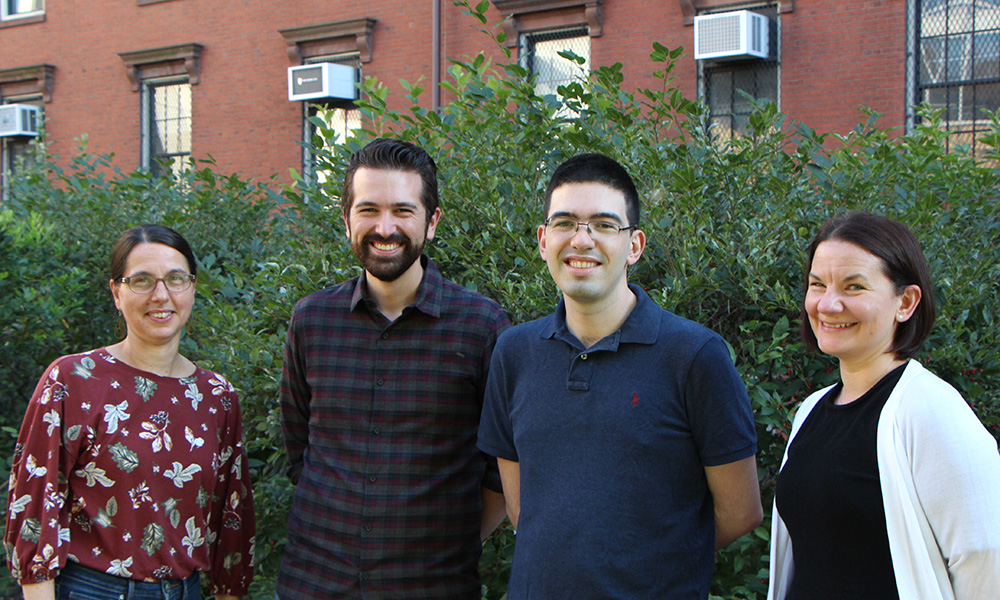Insects affect human lives both positively and negatively, therefore understanding how they interact with their surroundings can help us better manage their effects on our lives. Gustatory receptors…
Tag: Rachelle Gaudet
Gaudet Brings Curiosity and Service to Role as New MCB Chair
Rachelle Gaudet’s two-plus decades at Harvard can be categorized as curiosity- and service-driven. And as of July 2023, she is bringing that perspective to her position as chair…
Multiple New X-ray Snapshots Reveal How Transition Metals Cross Cellular Membranes Through Nramp Transporters [Gaudet Lab]
Transition metals like iron and manganese play crucial roles in various metabolic processes like photosynthesis, oxygen transport, and energy production through the electron transport chain. Transport proteins residing…
MCB Welcomes Rachelle Gaudet as New Department Chair
On July 1st, MCB faculty Rachelle Gaudet will succeed Sean Eddy as department chair. “Rachelle will be an outstanding chair for MCB,” Eddy says. “She and I share…
How E. coli Bacteria Activate a Toxin They Produce in a Way That Avoids Self-harm [Gaudet- and Balskus Labs]
The microorganisms living in, on, and around us, collectively known as the microbiome, produce metabolites that affect our health. Some of these molecules are essential for our wellbeing,…
Phi Beta Kappa Honors MCB Faculty Rachelle Gaudet with Award for Excellence in Teaching
The Harvard chapter of the Phi Beta Kappa (PBK) honor society has named MCB faculty Rachelle Gaudet as a recipient of the Alpha-Iota Prize for Excellence in Teaching.…
The (Evolutionary) Success Story of ABC Transporters [Gaudet- and Murray Labs]
Molecular machines underlie the vast diversity of the living world and are the result of millions of years of selection to optimize them for particular biochemical tasks. If…
Spotlight on Elizabeth May [Gaudet Lab]
When Elizabeth May (@LizMayScience on Twitter) first arrived at MCB in 2015, she was a visiting undergraduate in the Summer Research Opportunities at Harvard (SROH) program, which enables…
Nramp is Quite Different from the Textbook Description of a Secondary Transporter! [Gaudet Lab]
Organisms must accumulate scarce nutrients from their environments to survive. This often involves moving molecules up a concentration gradient, which is entropically unfavorable. Active transport proteins embedded in…
MCO Grad Student Elizabeth May Named as Aramont Fund Fellow!
MCO graduate student Elizabeth May (G4) of the Gaudet Lab has received a fellowship from the Aramont Fund for Emerging Science Research in support of a project called…









